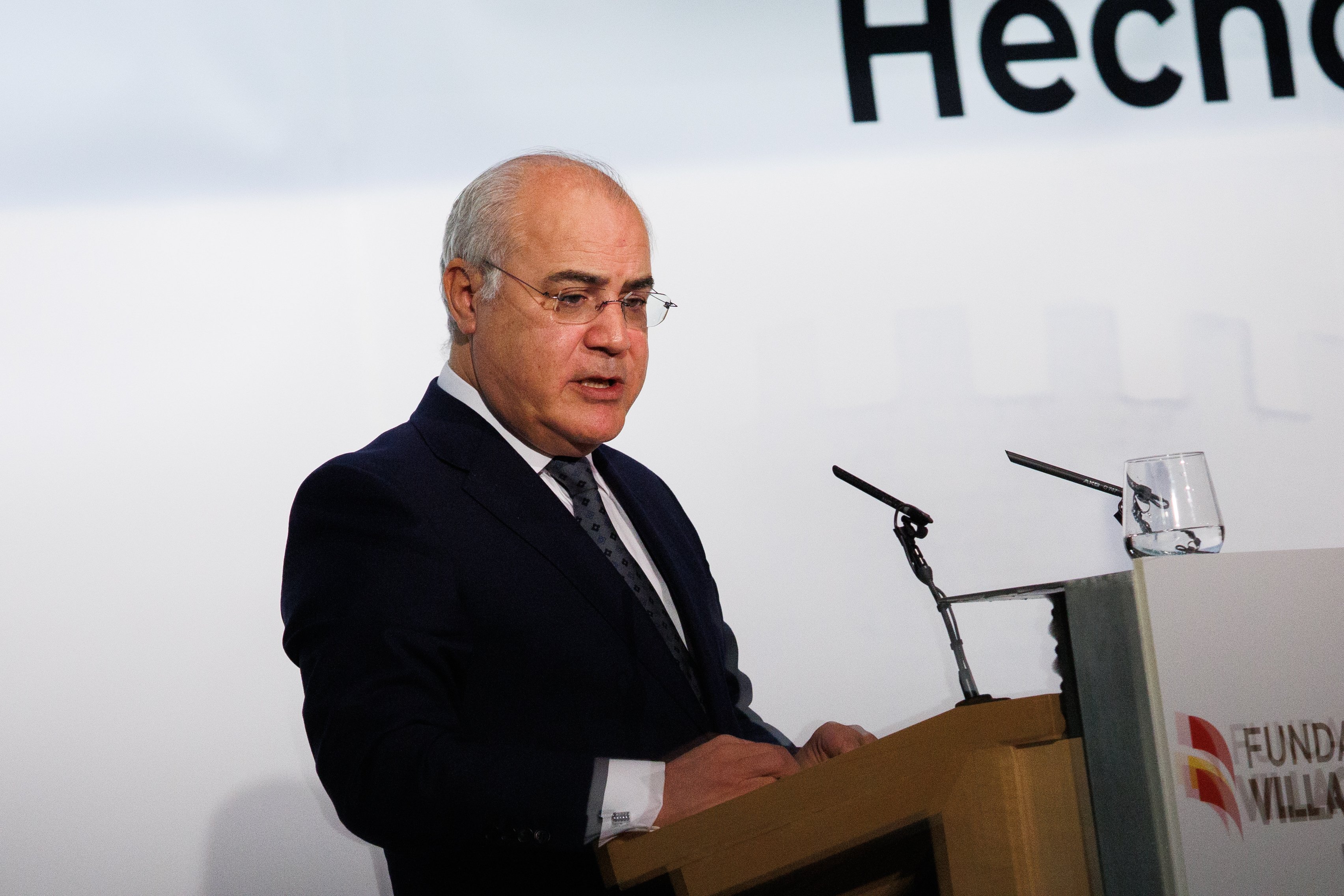He refuses to budge. Pablo Larena, Spanish Supreme Court judge and instructor of the case against the Catalan independence supporters, has responded to president Carles Puigdemont that he rejects his recusal for receiving a distinction from the Villacisneros Foundation, which he "identifies with politics contrary to his own" and argues that he also received an award from the Guàrdia Urbana Barcelona police, when Joaquim Forn was deputy mayor, "and from the same party" as Puigdemont, Junts. Forn was convicted of sedition by the Supreme Court as Catalan minister of interior during the October 1st referendum.
In the document published today by the Spanish Supreme Court, judge Llarena also rejects the recusal presented by lawyer Gonzalo Boye, on behalf of Junts MEPs Toni Comín and Clara Ponsatí. He argues that: "The new recusal does not compromise the image of impartiality that jurisdictional action offers to an impartial observer". He adds that he has received awards from other institutions, such as the medal of merit of the Guardia Urbana Barcelona police, which he received in 2011 from then mayor Xavier Trias, when Puigdemont was mayor of Girona and "from the same party", as was deputy mayor Joaquim Forn.
Credibility
Judge Llarena adds that all the recognitions he received "do not compromise now his public credibility that he has performed a neutral action". In his report, Llarena argues that "the authors of the recusal consciously ignore that impartiality is an internal and objectifiable attitude of the judge, and, therefore, the perception that society has about his neutrality must stem from the attitude or the judge’s own behaviour." However, the judge was thrilled to receive the award from the Villacisneros Foundation, which in the appeal of the exiles defined itself as "a Spanish nationalist organization, which was added to the manifesto calling for the arrest of Puigdemont in October 2017".
In addition to pursuing them judicially, Judge Llarena also quarrels with Puigdemont, Comín and Ponsatí by ensuring that they "only introduce references to the thinking or political affiliation of some members" of the board of directors of the Foundation, that they "hide" that the award is given by the entity’s board, on June 16th, 2021, and they do not analyse his speech upon receiving the award, which is accessible.
Freedoms
In addition, the judge details his actions as an instructor in the case against the Catalan leaders, to show that "there has been no personal persecution", such as the fact that he released the members of the Catalan Bureau of Parliament in the first statement, as well as some members of the Catalan Government, although in the second statement he had them imprisoned. He also cites the case of "not appreciating rational signs of criminality in Artur Mas, Marta Pascal or Neus Lloveras". He concludes that the resolutions that he dictated, which were adverse to some, "were validated on numerous occasions" by the appeals chamber of the Spanish Supreme Court. He also uses the law to justify his persecution of politicians in exile.
Main photo: Spanish Supreme Court judge Pablo Llarena / Europa Press

